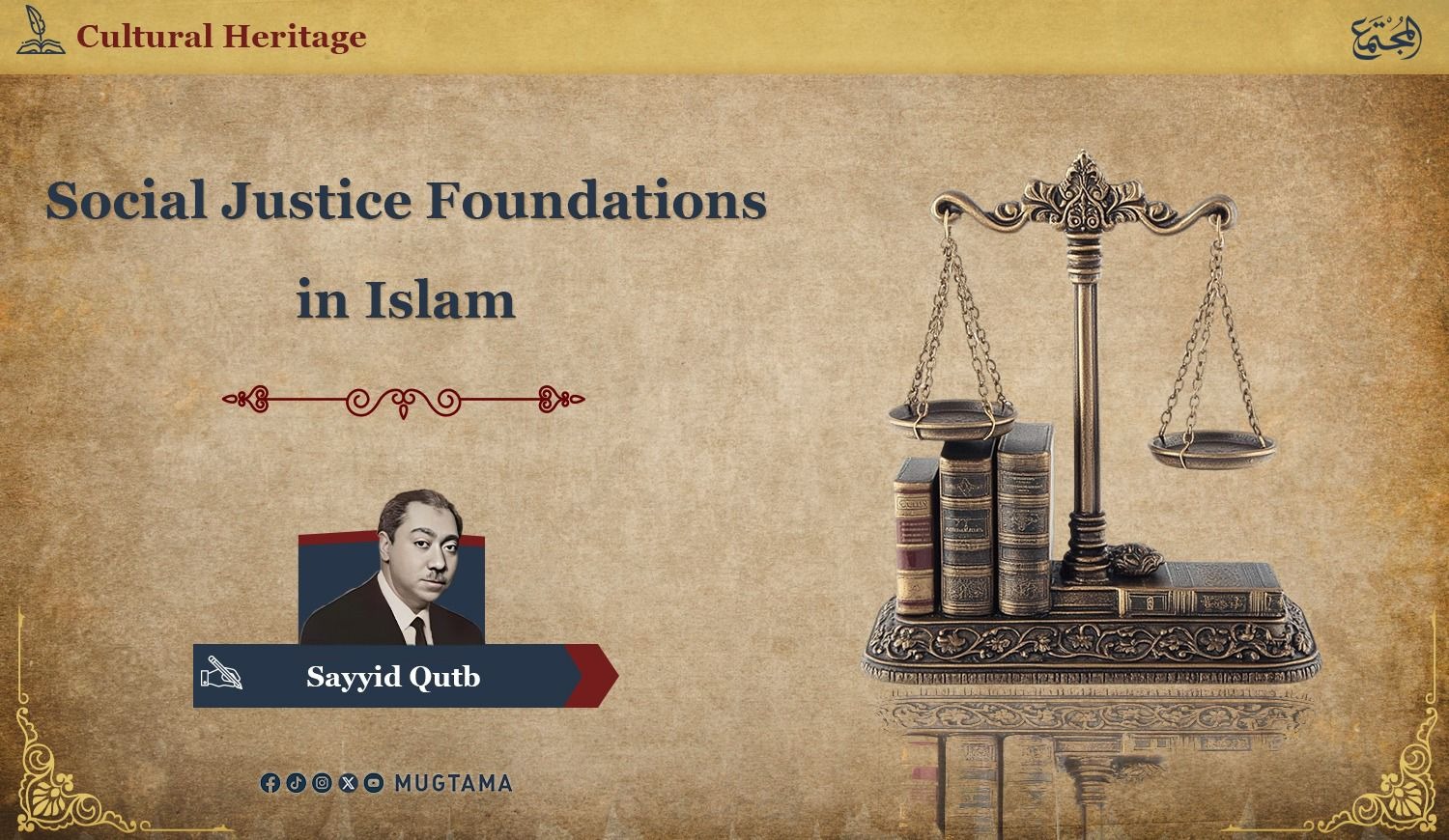Social Justice Foundations in Islam

Islam establishes social
justice—whose general nature we have already outlined—on firm foundations
and specifies definite means to achieve its aims. It does not leave the matter
as a vague concept or a mere general call. By its very nature, Islam is a
religion of implementation and practical action in real life, not merely a
religion of abstract preaching and guidance in the realm of ideals.
Islam’s Comprehensive Vision
We have already seen that Islam holds a
fundamental conception of divinity, the universe, life, and the human being. We
also understand that the foundation of social justice in Islam is influenced by
this fundamental conception and is part of its overall framework. Islam’s view
of human life makes social justice a comprehensive human justice that embraces
all components of human life. It does not stop at material or economic aspects
alone, for values in this life are both material and spiritual at the same time,
inseparable in their united nature.
Humanity, in Islam’s perspective, is a
cooperative and harmonious whole, not a set of conflicting or antagonistic
groups.
Reality in the Islamic Perspective
At times, reality may seem to contradict
this foundational Islamic idea. But first, we must understand: what does Islam
regard as “reality”?
The reality that Islam recognizes is not
the reality of a single individual, nor of a single nation, nor of a single
generation. That is only the small, limited, temporary reality which is
perceived by finite human minds when they confine their vision and fail to look
toward the greater, more comprehensive reality of humanity’s long existence and
the life of the whole universe.
Islam, however, looks toward all horizons,
considers all interests, and aims to achieve an end that encompasses all of
humanity—from the beginning to the end.
Thus, what may appear to be a conflict
within a limited, short-term reality may not appear so when we look to the
comprehensive reality—the reality of all humankind, not merely that of an
individual, a nation, or a generation.
The Far-Reaching View of Social Justice
This long-range, universal outlook on
social justice explains many of the systems in Islam, which cannot be fully
understood if viewed in isolation or only from the standpoint of the
individual, a single group, a single nation, or a single generation.
It is this vision that clarifies for us the
system of private ownership, the inheritance system, the zakat system, the
system of governance, and the system of transactions—and all other systems in
Islam that address individuals, groups, nations, and generations alike.
Scope of the Discussion
Here, we will not discuss all of these
systems in detail. We will limit ourselves to the general principles upon which
Islam builds social justice—within the bounds of its comprehensive vision.
We will see that Islam looks at the unity
of soul and body within the individual, at the unity of moral and material
aspects in life, at the unity of purpose between the individual and the
community, at the unity of interest between different groups in the same
nation, at the unity of aim between nations of humanity, and at the unity of
connection between successive generations despite their differing short-term
interests.
The Three Foundations of Social Justice in Islam
1. Absolute freedom of conscience
2. Complete Equality of all men
3. firm mutual responsibility of society
Read Also:
- The One Hundred Concepts Related to the Islamic
Project
- Islamic Globalization: A Civilization of Dialogue and
Persuasion
-------------------------------------------------------------
- Book “Social Justice in Islam” by Sayyid Qutb










